- Home
- Keith Douglass
Carrier c-1 Page 6
Carrier c-1 Read online
Page 6
At the far end of the room, a Pentagon action officer tapped a pointer against a series of photograph enlargements mounted on cardboard and propped up on easels. The pictures were almost abstract, black disks flecked with white and cryptically annotated with meaningless letters and numbers.
"We have here repeaters off the radar screens pulled from the Hawkeye's transmissions and downloaded to the NSA at Fort Meade," said the officer, a lieutenant colonel in an immaculate dress uniform. Like most Pentagon briefing officers, he had the good looks and articulation of a TV news anchor, but this one at least seemed to know what he was talking about. "As you can see here… here… and here, Chimera was being almost constantly shadowed by what we presume was a North Korean task force, a frigate and eight to twelve light patrol craft. At zero-seven-thirty-six local time ― that was seventeen-thirty-six hours last night ― two military aircraft provisionally identified as MiG-21Fs of the North Korean air force strafed the Chimera. At the same time, the Korean Communist surface units closed in." The pointer moved, touching featureless blobs of light. "We see them here… and here.
"At zero-seven-thirty-nine local, Fort Meade received a portion of a message by teletype, indicating that Chimera was under attack. The message was interrupted. It is possible that the sending antenna was damaged or destroyed."
One of the men at the table shifted uncomfortably, then removed his glasses and polished the lenses with the end of his tie. Secretary of State James A. Schellenberg had already made his position quite clear. A military response in this crisis was the last thing the United States wanted at this time. "Excuse me, Colonel, but, ah, there was nothing to indicate that this, uh, Chimera was destroyed, was there?"
"If by 'destroyed' you mean sunk, no, sir." The action officer shuffled the stacks of photos to reveal a new series. "Okay, fifteen minutes later you can see this large Korean vessel ― radar intercepts indicate it to be a Najin-class frigate ― moving close alongside Chimera. Here, they get so close that the two blips merge into one.
"At eleven-fifty hours local time, we have two blips again, underway at eight knots and moving toward Wonsan, some twenty-four miles to the west." He lowered the pointer and turned to face his audience. "We can only assume, Mr. President, gentlemen, that Chimera was boarded by hostile forces and taken by force into Wonsan."
"Taken by force," the President repeated. He watched as the action officer gathered his photographs. "Options, gentlemen," he said at last. "Give me options."
General Amos Caldwell, Chairman of the Joint Chiefs, looked up from the yellow tablet on which he had been making notes. "How many options are there in a situation like this, Mr. President? Seems to me we simply can't allow this deliberate and premeditated provocation to go unpunished."
"Are the Joint Chiefs in full agreement on this?"
"I would have to agree with General Caldwell, Mr. President." Admiral Fletcher T. Grimes was Chief of Naval Operations, a crusty, lantern-jawed man who twenty years before had commanded an aircraft carrier in the Gulf of Tonkin. "This is the Pueblo all over again. We can't let those bastards get away with piracy, damn it!"
"So? What are we going to do about it, Fletch?"
"We have a carrier battle group less than twelve hours from Wonsan. Use it!"
"How?"
"Air strikes… backed up by amphibious landings, if necessary. The Marines in Okinawa are on alert already. If we show the Koreans we mean business…"
"I'd go one further, Mr. President," Caldwell said. "This calls for full-scale intervention, right down the line. Army. Air Force. Special Forces."
"Invasion."
"We'll look pretty damned silly if we don't use every means at our disposal to bring about a resolution of this… this crisis, Mr. President. These people mean business. I suggest we show them we mean business as well."
"Good God," Schellenberg said. "Don't you think we ought to take the diplomatic approach first? The days of head-to-head military confrontation are over!"
"Who says?" The Director of Central Intelligence leaned forward at the table, hands clasped. Victor Marlowe, head of the entire American intelligence community, had personally brought word of Chimera's capture to the White House the night before. His voice carried a quiet, almost bantering tone which fooled no one at the table. They all knew how important Chimera was to him. "Mr. Secretary, you know as well as I do that gabbing with those people isn't going to get us anywhere."
"How do you know unless we try?" George Hall, the White House Chief of Staff, said from the other side of the table. "Mr. President, this could really backfire on you in the polls. There's time for a military option later."
"I'm aware of the polls, George," the President said. "Let's leave them out of this for the moment — "
"It's not just politics, sir. Korea was not a popular war in 1950, and it won't be popular with the people now."
"Popular!" General Caldwell scowled. "Since when are issues like this settled because of their popularity?"
Ronald Hemminger, the Secretary of Defense, smiled. "You haven't worked inside the Beltway long, have you, General?" There were subdued chuckles from around the table. General Caldwell was new to the position, having received his appointment to the JCS after his predecessor's recent retirement. His intolerance for Washington politics was well known.
"But he's right, you know," the CIA Director said. The bantering was gone from his tone now. "We let the Koreans get away with Pueblo in '68. They held our people… what? Eleven months? We let the Iranians get away with the embassy seizure, and they kept things boiling for four hundred forty-four days! This is a chance for P'yongyang to dirty our faces on every front page in the world."
"Hell, you're just pissed that they snatched your spook ship," Schellenberg said.
"That has nothing to do with it. They've snatched close to two hundred Americans! You want to see them paraded on the evening news every night for the next year or two? You want another Lebanon? Mark my words: we let them get away with this, they'll be all over us. A military option is our only option here!"
The President looked at the Secretary of Defense. "Ron, what do you think?"
Hemminger looked unhappy. "Protest at Panmunjom won't win us a damned thing, Mr. President. Hell, every year or two some KorCom border guard kills one of our people on the DMZ. We protest, they counter-protest, we take it up with the Military Armistice Commission, and nothing gets done. This'll be the same goddamned thing. But a military assault… Shit, we're gonna have to cover our asses until we know how the Russkies are gonna react."
Phillip Buchalter, the President's National Security Advisor, shrugged. "What are we gonna do, hit North Korea with trade sanctions?"
No one bothered to laugh. The United States already had no direct contact with North Korea at all.
"There are ways of dealing with them," Schellenberg said. "Ways short of starting a war. We could approach them through a third party which has diplomatic relations with P'yongyang. The People's Republic of China, for instance."
"That'll look just great in the Washington Post," the DCI said. He turned to face the President. "You wanted options, Mr. President. Well, you've got plenty of them, soft to hard." He began ticking points off on the fingers of his left hand. "We bring the matter up at the next MAC meeting at Panmunjom. We put through a formal diplomatic protest through another government… the PRC, or a clear neutral like India or Sweden. We hit 'em with carrier air strikes at selected targets, try to shake 'em up. B-52 raids mounted out of the ROK, same thing. Covert ops… use Delta or someone to go in and bring our people out." He held up a sixth finger on his other hand. "We send in the Marines." He opened all of the fingers on both hands. "Or we hit 'em with every goddamned thing we have. Full invasion."
"Hell, Vic," Schellenberg said. "Why'd you leave out nuking the bastards?"
"Be serious."
"No, you be serious! Good God, what do you want, a new Korean War?"
"I wasn't aware that the old one was over," s
aid Grimes.
"We go in full-scale and we'll never be free of it! And the Russians, man, the Russians! We have half a dozen new trade or disarmament treaties on the line right this minute, and they'll all be up for grabs if something like this blows up!"
"Speaking of treaties, we could have some real trouble with Tokyo over this," Buchalter pointed out. "Our basing agreements with them clearly prohibit our launching offensive missions from their territory."
"Wonderful," the defense secretary said. "Three squadrons of Falcons in Japan, and we can't use 'em."
"There's always South Korea," Marlowe said. "They won't mind rubbing North Korean noses in it."
"You really do want a war over there, don't you?" Schellenberg said wonderingly. "Haven't you guys at Langley heard? The Cold War's over!"
"And haven't you people at Foggy Bottom heard there are American lives at stake here? I'd like to get our people back, damn it, and talking Kim II-Sung and his cronies to death is not going to do it!"
The battle positions around the table were being drawn along predictable lines. The DCI wanted Chimera back and wanted to avoid the sort of intelligence tar-pit they'd been trapped in during the Iran crisis. State wanted a political settlement. There were disarmament treaties and foreign obligations which would be jeopardized by a fresh round of military saber rattling. Defense was worried about the Russians. The Navy wanted to use the carrier group they already had in the area. The Chairman of the Joint Chiefs wanted a full invasion with combined arms.
The President was himself an old Navy man, and his own, deep-down gut feeling was to send in the carrier group. The threat of carrier-borne air-strikes against North Korean targets ― fuel tank farms, military bases, airfields ― might be enough to make them back down.
"Here's the way we'll play it," he said at last. The bickering around the table ceased at once, each head turning to face the President. He looked at the Director of Central Intelligence. "Vic, we can't go into this blind. I'll want you people to step it up with the intel. We have to know where our people are being held and what the North Koreans are up to."
"Yes, sir."
He turned to the Defense Secretary. "Ron, I think we can raise the alert status for all our bases over there without stirring up the Russians much. Or the Japanese."
"The Russians will up their status too, sir, but… I guess that's all we can do."
"Not quite." The President looked at the CNO. "Fletch, I want you to cut orders for the Jefferson. I want them and the Marines in position to do something ASAP. What have we got in the way of covert capability out there?"
"We could have a SEAL team on board the Jefferson in eighteen hours."
"Mr. President," General Caldwell said, "under the circumstances, wouldn't it be prudent to put the entire military on alert, sort of start things rolling?"
The President sighed. "I want to avoid an all-out invasion, Amos," he said. "You're right, of course. At least you can put the 82nd on alert, start getting ready to go in if we have to. But I think I want to gamble on the Navy for this one. They're there, and they're ready. If they can't handle it, we'll have to work some other angle."
Schellenberg started to say something, but the President held up his hand. "All of this is just in case, gentlemen. I won't mind at all being all dressed up with no place to go on this one… but I sure as hell don't want to be caught naked if the doorbell rings."
As the Security Council meeting broke up, it struck the President just how much was riding on the carrier group commander. That poor SOB may just find himself on the point of the spear, the President thought. And I thought my job was a bitch.
DAY TWO
CHAPTER 6
0610 hours
CVIC, U.S.S. Thomas Jefferson
The briefing room was called Civic. The name was a Navy contortion of CVIC, CV being the designation for carrier, and IC standing for Intelligence Center. It was a long room aft of Flag Plot with the ever-present grays and off-greens of Navy-painted steel bulkheads relieved by an oil painting of the U.S.S. Thomas Jefferson at one end. Framed prints along other walls depicted scenes from U.S. Naval history: the Constitution and the Guerrier, the Kearsarge sinking the Alabama, the sailing of Roosevelt's Great White Fleet, the firing of the first salute to the U.S. flag, F-4 Phantoms dueling MiGs over Quan Lang. A projection screen mounted on the wall and folding chairs facing a podium gave it the air of an elementary school auditorium.
Admiral Magruder had called the meeting for all squadron commanders, and Marusko was there as CAG.
The Thomas Jefferson carried ten squadrons in her air wing ― CVW-20 ― a total of eighty-six aircraft and over twenty-eight hundred officers and men. The realization that he was in command of that wing still took Marusko by surprise from time to time. The acronym CAG, for Commander Air Group, was a holdover from the years prior to 1963 when the term for an aircraft carrier's striking arm was changed from "carrier air group" to "carrier air wing." Marusko had often gotten a laugh with his explanation of the term, insisting that no self-respecting aviator could go around calling himself CAW! CAW!
He watched the other officers walking in. They were young, most of them, with that curious, bright-eyed mixture of arrogance and aggressiveness which made a good carrier fighter pilot. He saw Matt Magruder enter, talking with Marty French, the skipper of VFA-161. The way he was moving his hands, stiff-fingered, one just behind the other, left no doubt that he was describing his dogfight to French. You could always tell a fighter pilot by the way he used his hands to tell a story.
Commander Richard Patrick Neil trailed in after the squadron skippers. A short, slightly built Boston Irishman from Admiral Magruder's staff, Neil was Carrier Group Intelligence Officer and head of Jefferson's threat team. He came in carrying a slide projector which he proceeded to set up on a stand at the back of the room.
It would be Neil who would conduct the major portion of the briefing, Marusko thought. He didn't particularly like Neil. The man had a grating personality and the irritating habit of always being right, but he'd be the one to best present the spooks' view of the current mess. Several others of the admiral's staff were present as well. A yeoman chief was in one corner, taking notes. A transcript of this briefing would be heloed over to each of the other five ships in the CBG.
"Attention on deck!" Every man in the room came to his feet as Admiral Magruder strode in, walking briskly toward the front of the room.
"As you were," he said before anyone was fully at attention. There was a scraping clatter of feet and steel chairs as the officers took their seats. The admiral took his place behind the podium.
"Very well, gentlemen," Admiral Magruder said as the noise died away. "All of you know by now that yesterday afternoon a patrol from VF-95 was vectored to a point just off the North Korean port of Wonsan. Washington didn't give us much to go on at the time, but the word was that one of our ships was in trouble there.
"Our aircraft did not locate the ship, but they did come under fire from North Korean aircraft. One of our planes was shot down. Commander Neil will fill us in on the background. Commander?"
"Thank you, Admiral." Neil signaled to a staff lieutenant to dim the lights, then switched on the projector. A political map of Korea flashed onto the screen, a blunt, indented finger dangling south from the Asian mainland. It was color-coded, red for the People's Democratic Republic ― the PDRK ― in the north, blue for the Republic of Korea in the south, sundered by the zigzag of the DMZ.
"Korea, gentlemen, the Land of the Morning Calm," Neil said. His voice was high and had a faintly nasal quality underlying the flat, New England twang. He sounded self-assured and somewhat detached, as though he were briefing the men on a routine Naval exercise. "A little background for those of you who don't know their history. After World War II, the country was divided between Soviet and American occupation forces. Korea became, in effect, two countries, the People's Democratic Republic north of the 38th parallel, capital at P'yongyang, and the Republic of Korea
in the south, capital at Seoul. In 1950, the PDRK invaded across the 38th parallel. That, of course, began the Korean War."
"Korean Police Action," someone in the front row said. Several men laughed.
Neil ignored the correction. "As far as the PDRK is concerned, the Korean War never ended. They've wanted to… their word is liberate the south ever since, but they haven't been able to so long as we've been backing the Seoul government.
"Now we come to the events of the past several weeks. Those of you who read the newspapers know that there's been considerable saber rattling from both P'yongyang and Seoul. The President has called on both sides for restraint, but the shouting's been too loud lately for anyone to hear appeals for moderation. As a precaution, the President ordered our carrier group into the Sea of Japan last week. The 9th Marine Expeditionary Brigade in Okinawa was put on alert, and an ad hoc MEU was prepared for possible deployment. The PDRK has responded by calling for the withdrawal of all foreign forces from South Korea, to allow the Koreans to settle their own 'internal' problems.
"The CIA feels that the escalation in tensions is being deliberately orchestrated by P'yongyang for a purpose, we're not sure why. It was decided that more intelligence on the Communist forces, deployments, and intentions was needed."
The slide projector went chunk-clunk, and the map was replaced by a beam-on shot of what Marusko thought must be one of the ugliest-looking ships afloat. She'd been designed as an LST. The designation stood for Landing Ship, Tank ― a World-War-II-era transport vaguely reminiscent of an oil tanker, long, boxy and flat, with the superstructure and bridge set far aft in order to make room for the tank deck forward. Before completion, her builders had changed their minds and rebuilt her as an ARL, a landing craft repair ship. From blunt stem to squared-off stern, her long forward deck was crammed with a tangled clutter of struts, fittings, masts, booms, and aerials. A raised helicopter landing pad had been dropped onto the deck halfway between the superstructure and the bow almost as an afterthought. The bridge was flanked by whaleboats slung from davits on either side of the deckhouse. A tripod mast rose abaft the bridge, bearing a large radar dish and an array of exotic antennae. Black-shadowed letters and numerals at bow and stern prominently spelled out RL 42.

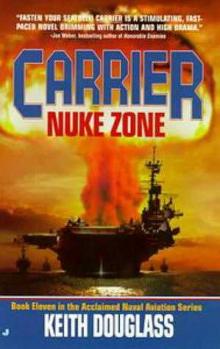 Nuke Zone c-11
Nuke Zone c-11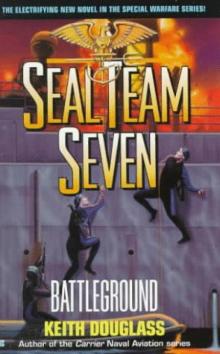 Seal Team Seven 6 - Battleground
Seal Team Seven 6 - Battleground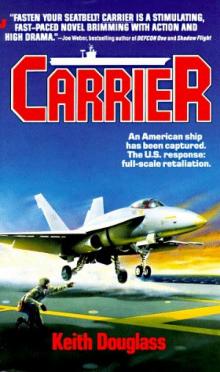 Carrier c-1
Carrier c-1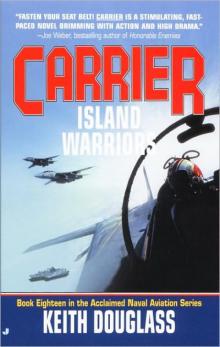 Island Warriors c-18
Island Warriors c-18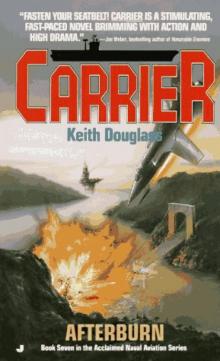 Afterburn c-7
Afterburn c-7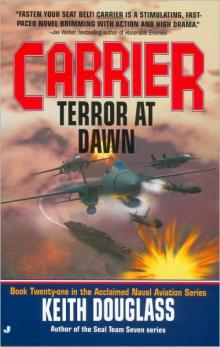 Terror At Dawn c-21
Terror At Dawn c-21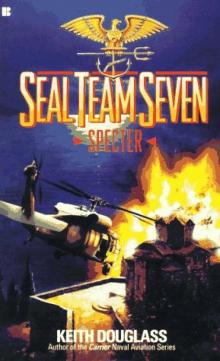 Specter sts-2
Specter sts-2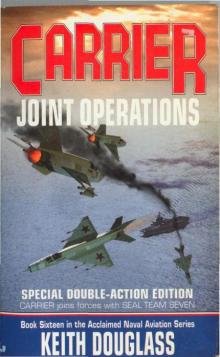 Joint Operations c-16
Joint Operations c-16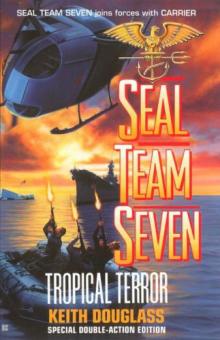 Tropical Terror sts-12
Tropical Terror sts-12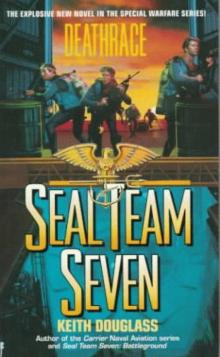 Seal Team Seven 7 - Deathrace
Seal Team Seven 7 - Deathrace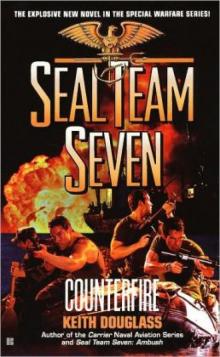 Counterfire sts-16
Counterfire sts-16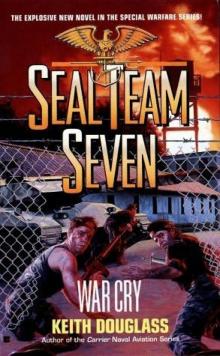 War Cry sts-9
War Cry sts-9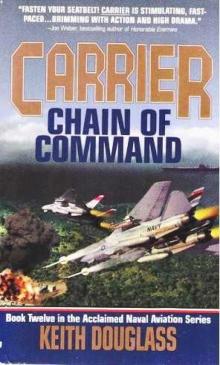 Chain of Command c-12
Chain of Command c-12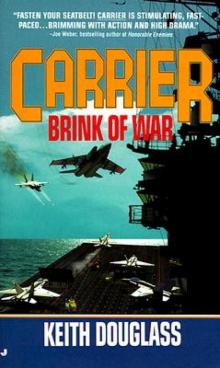 Brink of War c-13
Brink of War c-13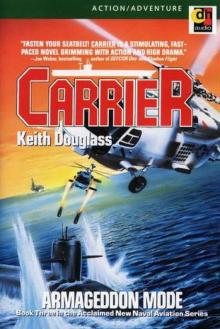 Armageddon Mode c-3
Armageddon Mode c-3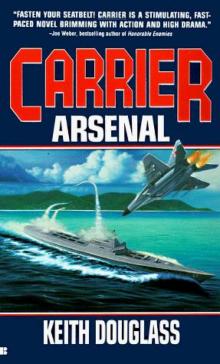 Arsenal c-10
Arsenal c-10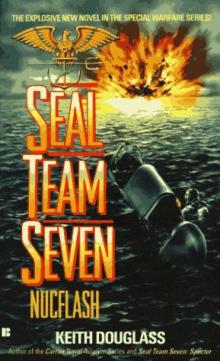 Nucflash sts-3
Nucflash sts-3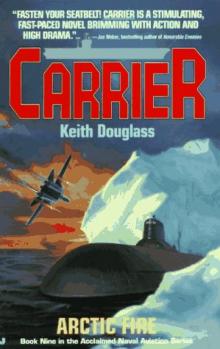 Arctic Fire c-9
Arctic Fire c-9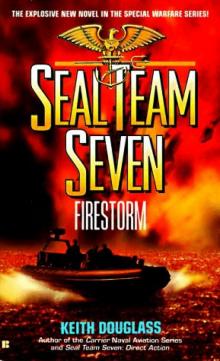 Firestorm sts-5
Firestorm sts-5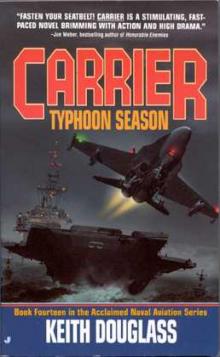 Typhoon Season c-14
Typhoon Season c-14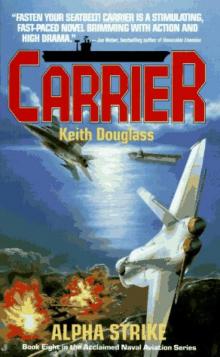 Alpha Strike c-8
Alpha Strike c-8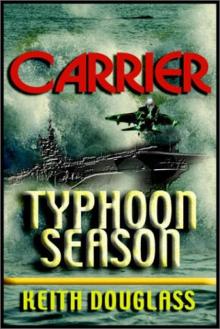 Carrier 14 - TYPHOON SEASON
Carrier 14 - TYPHOON SEASON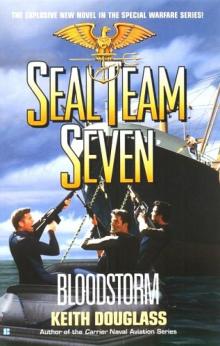 Bloodstorm sts-13
Bloodstorm sts-13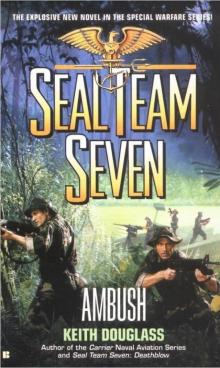 Ambush sts-15
Ambush sts-15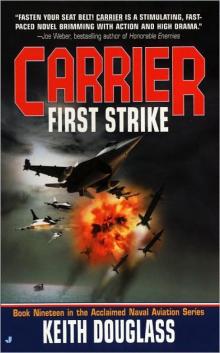 First Strike c-19
First Strike c-19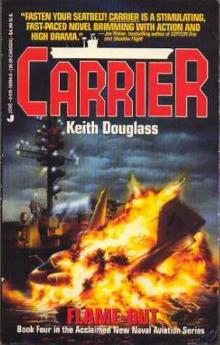 Flame Out c-4
Flame Out c-4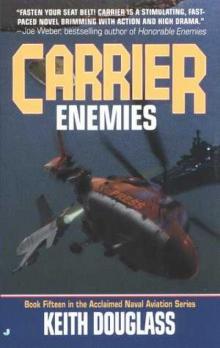 Enemies c-15
Enemies c-15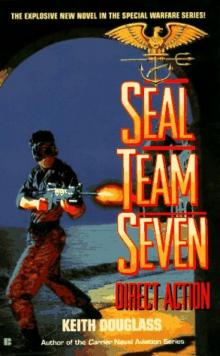 Seal Team Seven 04 - Direct Action
Seal Team Seven 04 - Direct Action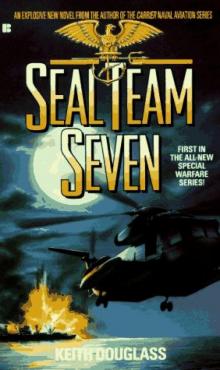 Seal Team Seven 01 - Seal Team Seven
Seal Team Seven 01 - Seal Team Seven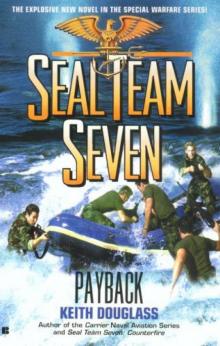 Payback sts-17
Payback sts-17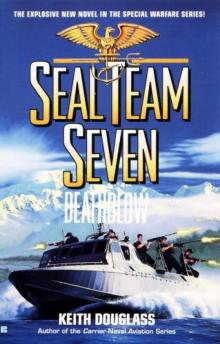 Death Blow sts-14
Death Blow sts-14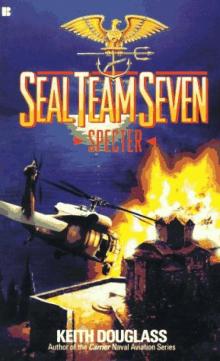 Seal Team Seven 02 - Spector
Seal Team Seven 02 - Spector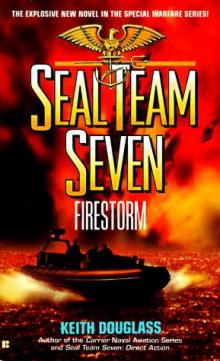 Seal Team Seven 5 - Firestorm
Seal Team Seven 5 - Firestorm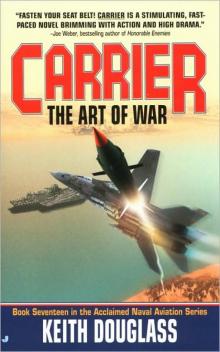 The Art of War c-17
The Art of War c-17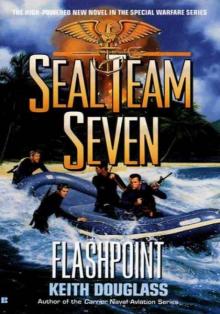 Flashpoint sts-11
Flashpoint sts-11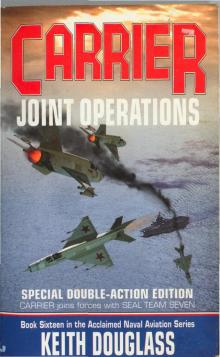 Carrier - Joint Operation Book 16
Carrier - Joint Operation Book 16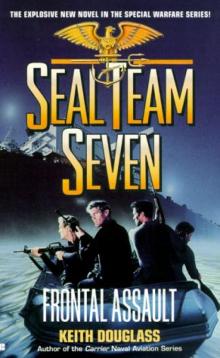 Frontal Assault sts-10
Frontal Assault sts-10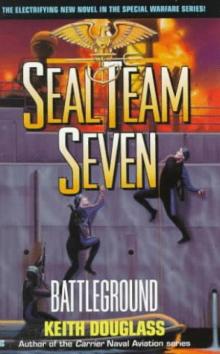 Battleground sts-6
Battleground sts-6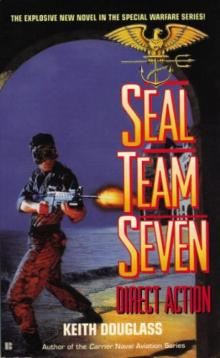 Direct Action sts-4
Direct Action sts-4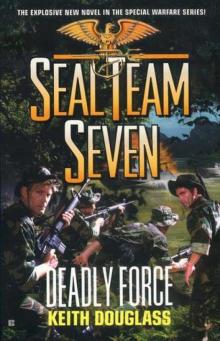 Deadly Force sts-18
Deadly Force sts-18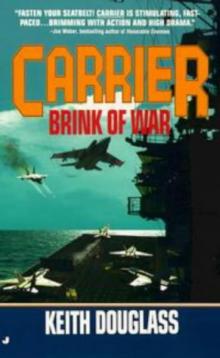 Carrier 13 - Brink of War
Carrier 13 - Brink of War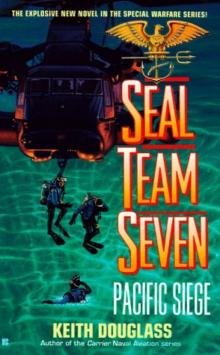 Pacific Siege sts-8
Pacific Siege sts-8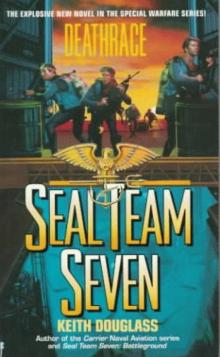 Deathrace sts-7
Deathrace sts-7